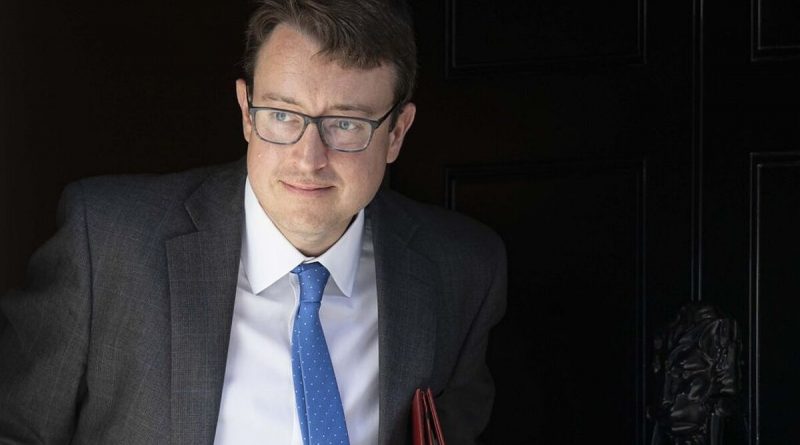Rail union pay demands leading to ‘more walkouts and spiralling inflation’, says Treasury
PMQs: PM slams Starmer’s ‘silence’ on RMT strikes
We use your sign-up to provide content in ways you’ve consented to and to improve our understanding of you. This may include adverts from us and 3rd parties based on our understanding. You can unsubscribe at any time. More info
It comes on the eve of Britain’s biggest rail strike since 1989 with around 40,000 workers set to walk out on June 21, 23 and 25. Mick Lynch, the general secretary of the National Union of Rail, Maritime and Transport Workers (RMT) has said that the strikes will go ahead unless his members pay demands are met.
Mr Lynch has argued that railway workers need a pay rise that reflects soaring prices amid the cost of living crisis.
However Chief Secretary to the Treasury Simon Clarke warned that “unrealistic expectations around pay” could push inflation even further.
He said: “We have to be very careful at this point about preventing inflation from becoming a self-fulfilling prophecy.
“And this is what the Chancellor and I are obviously very keenly focused on in the Treasury, that we want to make sure that everyone understands that we need to help people with the cost of living, and that some of the answer to that is pay.


“But what we can’t do is have unrealistic expectations around pay, which do in turn prolong and intensify this inflation problem because we all want it to end.
“And the way it will end soonest is if we are sensible about pay.”
It comes as The Bank of England revised its inflation prediction for the year to 11 percent with inflation around running at a 40 year high.
The Treasury has expressed concern that a successful strike by the RMT could encourage other unions to strike.


This could drive inflation up even further and put more pressure on public sector budgets.
Tory backbenchers have urged Prime Minister Boris Johnson to not give in to the rail unions and cut taxes rather than increasing wages in order to assist with the cost of living crisis.
It comes as some local authorities have awarded workers with pay rises following pressure from unions.
Refuse workers in Sussex received a 24 to 27 percent rise while those in Croydon were awarded a one off bonus of £750 and Rugby Borough Council gave workers a rise of 12 percent.
DON’T MISS:
Weed infestation blamed on BREXIT in staggering row [REVEAL]
Train strike: Full guide to as rail unions grind Britain to halt [INSIGHT]
Considerable wealth’ pouring into UK – new data [SPOTLIGHT]

Former Tory Cabinet Minister and leadership candidate John Redwood told The Telegraph that “limited interventions” were needed.
He said: “You have to fight inflation and slow down recession at the same time, but the way you do that is with tax cuts.
“I’ve always recommended that where you are giving money back to people, you do it by cutting taxes, like VAT on fuel, so you are achieving two aims at the same time.
“They need to look again at how they can have limited interventions on the tax burden.”
The Bank of England’s chief economist Huw Pill told Bloomberg TV that it may be forced to raise interest rates by half a percentage point.
He said: “If we see greater evidence that the current high level of inflation is becoming embedded in pricing behaviour by firms, in wage-setting behaviour by firms and workers, then that will be the trigger for this more aggressive action.”
Source: Read Full Article


